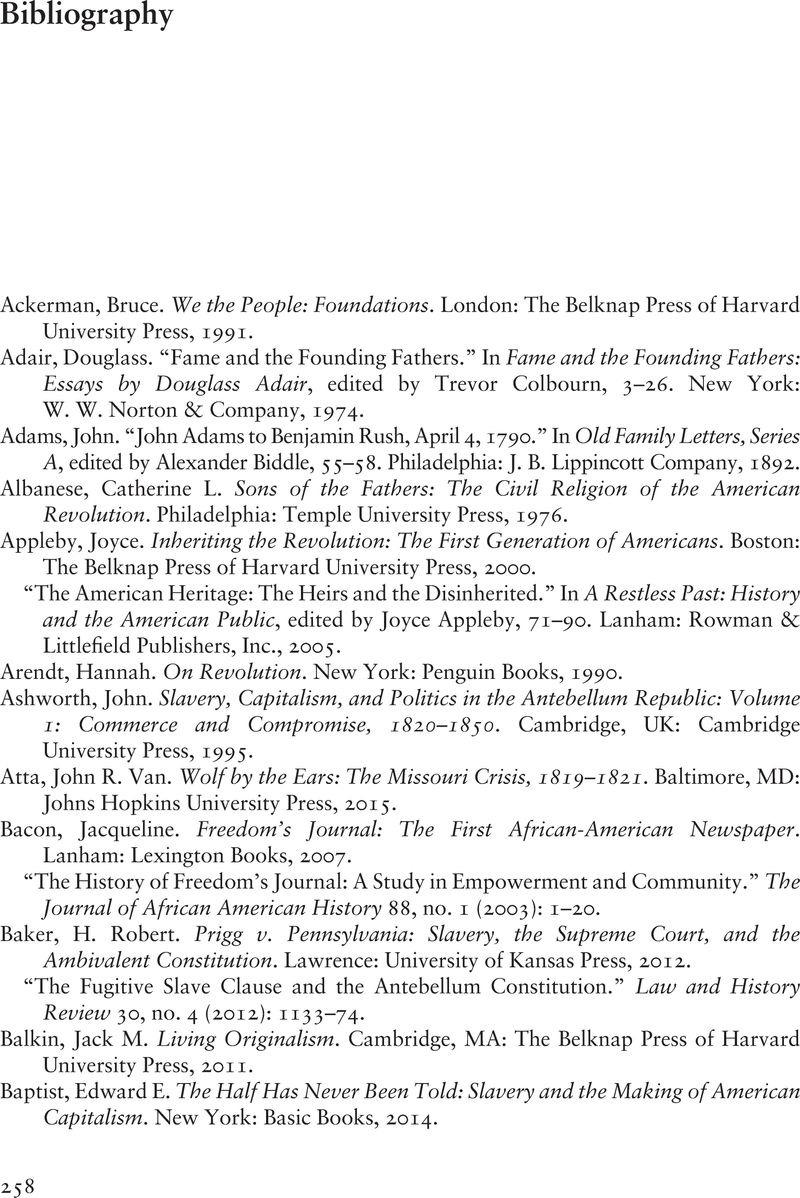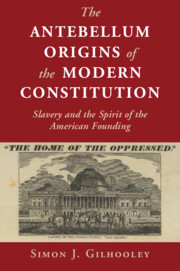Book contents
- The Antebellum Origins of the Modern Constitution
- Cambridge Studies on the American Constitution
- The Antebellum Origins of the Modern Constitution
- Copyright page
- Dedication
- Epigraph
- Contents
- Acknowledgments
- Introduction
- 1 The Constitutional Imaginaries of the Missouri Crisis
- 2 The Declaration of Independence and Black Citizenship in the 1820s
- 3 Abolitionism and the Constitution in the 1830s
- 4 The Slaveholding South and the Constitutionalization of Slavery
- 5 Theories of the Federal Compact in the 1830s
- 6 Slavery, the District of Columbia, and the Constitution
- 7 The Congressional Crisis of 1836
- 8 The Compact and the Election of 1836
- 9 The Afterlife of the Compact of 1836
- Conclusion
- Bibliography
- Index
- References
Bibliography
Published online by Cambridge University Press: 16 October 2020
- The Antebellum Origins of the Modern Constitution
- Cambridge Studies on the American Constitution
- The Antebellum Origins of the Modern Constitution
- Copyright page
- Dedication
- Epigraph
- Contents
- Acknowledgments
- Introduction
- 1 The Constitutional Imaginaries of the Missouri Crisis
- 2 The Declaration of Independence and Black Citizenship in the 1820s
- 3 Abolitionism and the Constitution in the 1830s
- 4 The Slaveholding South and the Constitutionalization of Slavery
- 5 Theories of the Federal Compact in the 1830s
- 6 Slavery, the District of Columbia, and the Constitution
- 7 The Congressional Crisis of 1836
- 8 The Compact and the Election of 1836
- 9 The Afterlife of the Compact of 1836
- Conclusion
- Bibliography
- Index
- References
Summary

- Type
- Chapter
- Information
- The Antebellum Origins of the Modern ConstitutionSlavery and the Spirit of the American Founding, pp. 258 - 269Publisher: Cambridge University PressPrint publication year: 2020

